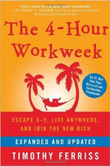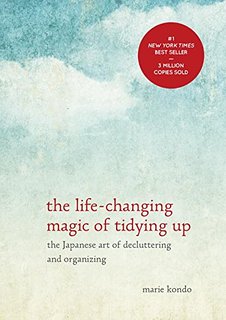Lessons in Success
Brandon Sun, May 2, 2009 - David McConkey
Why are some people much more successful than others? This is the
question Malcolm Gladwell explores in his new bestselling book Outliers:
The Story of Success.
“Outliers” are phenomena that lie outside of the norm. “Outliers,” the
book, is about successful people who live outside of the norm.
Gladwell delves into a diversity of success stories including hockey
stars, the Beatles, and Bill Gates. Gladwell is the author of previous
bestsellers The
Tipping Point and Blink.
Successful individuals are smart and work hard, but Gladwell says there
is much more to success than that. “Extraordinary achievement,”
Gladwell says, “is less about talent than it is about opportunity.”
Most of the stories are from the U.S., but Gladwell refutes the
American idea of the lone hero who triumphs by sheer wits and pluck.
“No one,” Gladwell says, “ever makes it alone.”
I think that Gladwell has developed this holistic view because he
himself is an outsider. Gladwell grew up in Canada; his parents
immigrated to Canada from the United Kingdom when he was a young boy.
The book illustrates the advantage of combining the American more
individualistic ideal with the Canadian more collective ideal.
“Outliers” is alive with stories. Why was Bill Gates so
successful? Why do successful airplane pilots come from
certain cultures? What do many successful hockey players have in
common, which, by the way, has nothing to do with their athletic
ability?
Although Gladwell tells the stories of the super stars, he also looks
more broadly. He is interested as well in more everyday success, like
penniless immigrants who lay the foundation for their children to enter
the middle class. Or people who discover rewarding work, do their jobs
well, and contribute to their communities.
An underlying current to the book is the meaning of work. Successful
people not only work much harder than others, but also seek out work
that is satisfying and fulfilling.
The impact of culture intrigues Gladwell. Aspects of some cultures
promote success much more than others.
“Cultural legacies matter – they are powerful and pervasive and they
persist, long after their original usefulness has passed,” he points
out.
Gladwell deals with the cultural topics that we frequently avoid. Like
why Jewish immigrants are so successful. Or why Asian kids are so good
at math. But Gladwell argues that if we are to examine the parts of
cultures that encourage or discourage success, “we have to be frank
about a subject that we would all too often rather ignore.”
Reading just a summary of Gladwell’s book might lead one to wonder
about racism, but Gladwell’s discussion actually takes race out of the
picture. For example, he explains why traditional Korean culture is
very good for learning modern math, but very poor for flying modern
airplanes. (The descriptions of such dynamics make the book fascinating
reading.)
Gladwell’s conclusions are very optimistic. He describes how Korean
airplane pilots have learned new skills, and as a result, Korean Air
has gone from one of the most dangerous airlines in the world to one of
the safest.
In another example, Gladwell tells about a school in New York City
where very poor black and Hispanic kids are achieving astounding
academic success. Surprisingly, the students who attend are not chosen
because of their ability, but by a lottery.
Gladwell’s own experience has given him a special perspective on
cultural legacy. Gladwell’s mother is from Jamaica, of mixed racial
background: black and white, as well as Arawak – the aboriginal people
of that island.
As a descendant of slaves and other oppressed minorities, Gladwell
eloquently describes the legacy of generations of racism. Going beyond
traditional cultural patterns is very close to his heart. He has
written a very personal, powerful, and hopeful book.
I would like to see Gladwell’s analyses applied to Manitoba. All around
us we see stories of success, but also of failure.
Why are some ethnic groups in Manitoba much more successful than
others? How could more people be more successful?
I imagine that such research could most help our aboriginal citizens,
who have suffered greatly from a lack of success.
“We, as a society, have more control about who succeeds – and how many
of us succeed – than we think,” Gladwell concludes in a recent
interview.
See also:
Ordinary Lives, Extraordinary Stories
Tax Time Offers Folks a Chance to Reflect
Popular Right Now:
- 15 Tips for Healthy Eating
- Quality of Life, Well-Being Research Something We Can Feel Good About
- Diets Don't Work, So What Does?
- Political Contributions: Top Ten Canadian Tax Tips
- Nestle Fitness 14 Day Weight Loss Program; What is Wrong Here?
- Charitable Donations: Top Ten Canadian Tax Tips
Must Read Books:
The 4-Hour Workweek:
Escape 9-5, Live Anywhere, and Join the New Rich

What You Don't Know About Religion (But Should)

In Defense of Food:
An Eater's Manifesto

The Life-Changing Magic of Tidying Up:
The Japanese Art of Decluttering and Organizing

Don't
Even Think About It:
Why Our Brains are Wired to Ignore Climate Change

Like This? Share It!
Press Ctrl + D to Bookmark!

